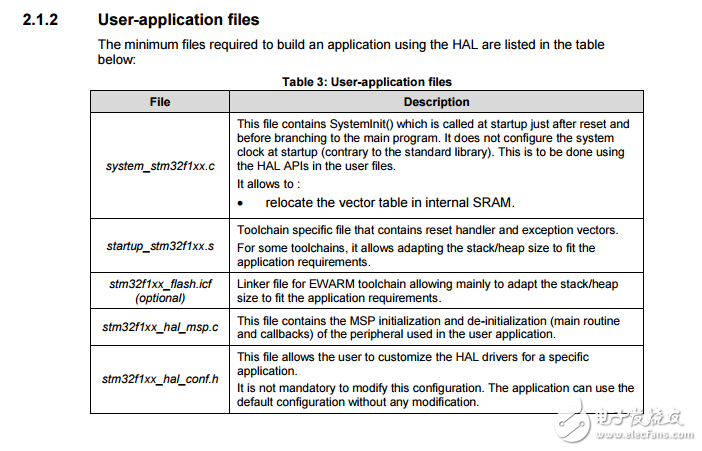
资料下载

stm32f1xx HAL驱动程序的描述
2 Overview of HAL drivers The HAL drivers were designed to offer a rich set of APIs and to interact easily with the application upper layers. Each driver consists of a set of functions covering the most common peripheral features. The development of each driver is driven by a common API which standardizes the driver structure, the functions and the parameter names. The HAL drivers consist of a set of driver modules, each module being linked to a standalone peripheral. However, in some cases, the module is linked to a peripheral functional mode. As an example, several modules exist for the USART peripheral: UART driver module, USART driver module, SMARTCARD driver module and IRDA driver module. The HAL main features are the following: Cross-family portable set of APIs covering the common peripheral features as well as extension APIs in case of specific peripheral features. Three API programming models: polling, interrupt and DMA. APIs are RTOS compliant: Fully reentrant APIs Systematic usage of timeouts in polling mode. Peripheral multi-instance support allowing concurrent API calls for multiple instances of a given peripheral (USART1, USART2.。。) All HAL APIs implement user-callback functions mechanism: Peripheral Init/DeInit HAL APIs can call user-callback functions to perform peripheral system level Initialization/De-Initialization (clock, GPIOs, interrupt, DMA) Peripherals interrupt events Error events. Object locking mechanism: safe hardware access to prevent multiple spurious accesses to shared resources. Timeout used for all blocking processes: the timeout can be a simple counter or a timebase

声明:本文内容及配图由入驻作者撰写或者入驻合作网站授权转载。文章观点仅代表作者本人,不代表电子发烧友网立场。文章及其配图仅供工程师学习之用,如有内容侵权或者其他违规问题,请联系本站处理。 举报投诉
- 相关下载
- 相关文章





